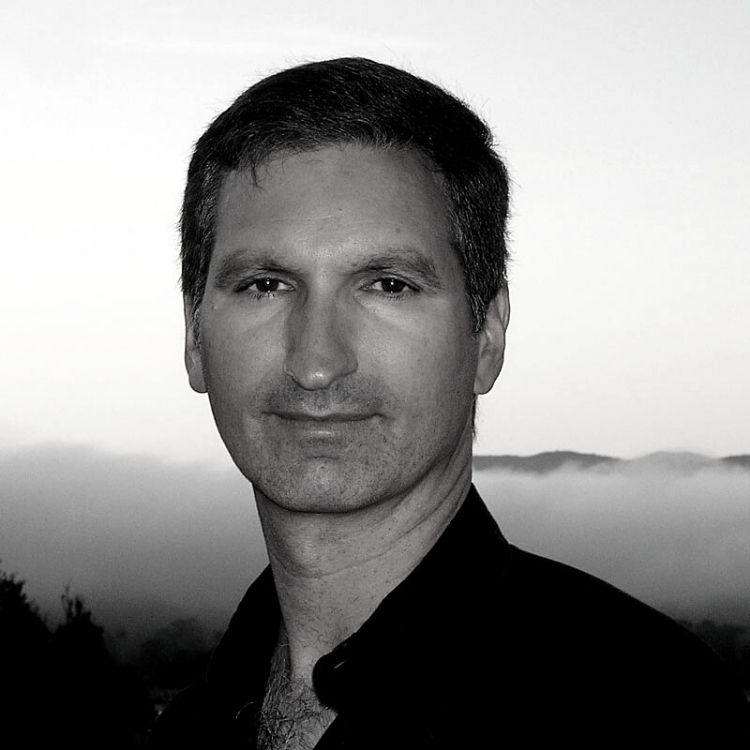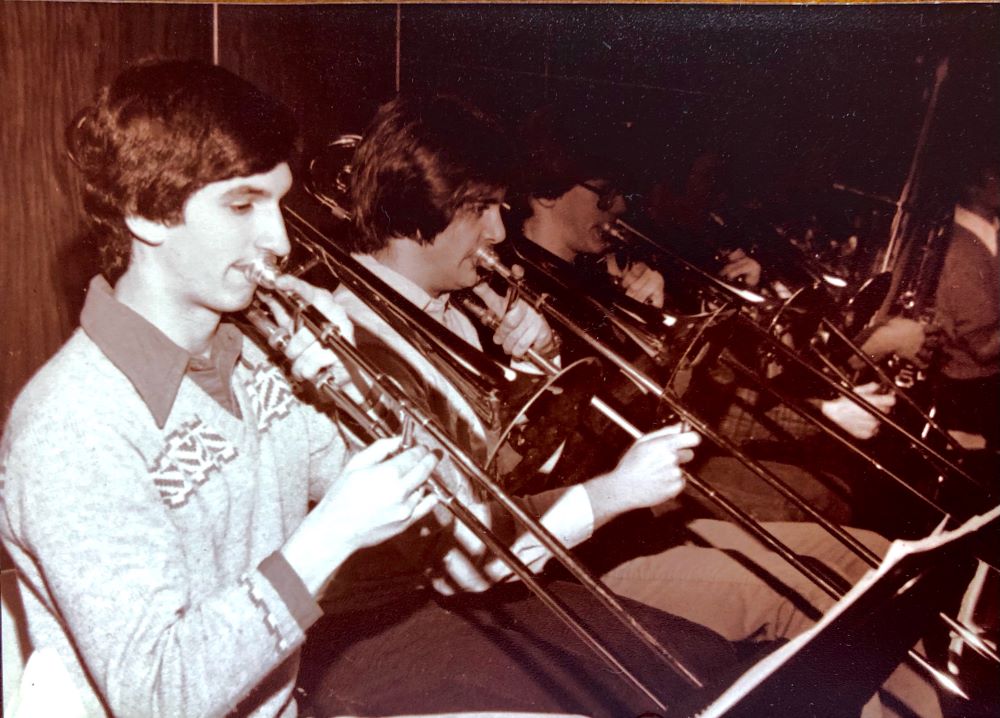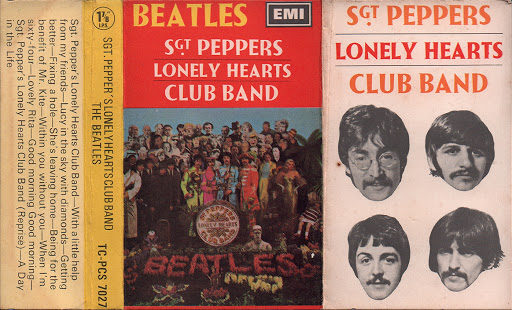26 Jul An Interview with Vincent Russo
We caught up with multi-talented composer, arranger and conductor, Vincent Russo, to chat about his career in music, key influences & the composition process.
The Interview
Melodie: Hi Vincent, thanks for joining me from San Francisco today! What have you been working on lately?
Vincent: Hi Selin, it’s a pleasure. I’ve been working on a lot of production music as always. Most recently, I’ve been asked to write a piece about my experiences with Covid-19, which I think is going to be a real challenge.

Oh, wow. That’s an interesting one. How are you finding it?
Challenging because I, very fortunately, haven’t had any real first-hand experience with Covid-19. For me, it has just been about social isolation and waiting for it to be over, so it’s hard to express my experience in music. I’ve come up with a couple of ideas for the piece though – I’m going to use the initials of a friend of mine who, unrelatedly with Covid, passed away right when lockdown started. So I thought it could be meaningful to use his initials in the piece, along with some other ideas.
I have to get going with it – it’s one of those things where it’s going to take forever to put together until you actually start writing it!
I’m sorry to hear, and definitely. We love to plan things out with every detail so we can feel prepared, but sometimes you just have to start and things will fall into place.
So true! And a lot of times, it ends up becoming something completely different (and better!) than what you thought it was going to become.
Agreed. So how did you first get started in music?
I started taking guitar lessons when I was 7, but that didn’t really stick at first. It wasn’t until I was about 9 that I started taking trombone lessons.
I have a twin brother (who doesn’t look like me at all), and he and I both really got into music. From a very, very early age, we were constantly listening to music on the radio. One of the first things we learned to do as toddlers was to put NLP on and listen to it. My parents did have an interesting collection of music too. I listened to a lot of soundtracks, classic music, popular music, Broadway, popular rock (at the time it was Beatles – showing my age now!). I heard Beatles when it first came out on the radio…
So I had a very large background in genres. As I mentioned, I played the guitar and trombone, which is a very versatile instrument. It’s played in all different kinds of ensembles, like jazz, classical… So I played in jazz bands, classical orchestras and rock bands.

Regarding composition, I’ve always had this want of writing in all different styles. And that’s actually what’s so great about production music. When you’re in classical music, there’s a certain cultural, academic idea about what music should be, and if you don’t write like that, the perception is that you’re not taking it seriously.
In production music, however, you can write in any style you want. The nice thing is the parameters are pretty much set – you have a really good idea about what you’re going to write and what choices you’re going to make because if you go too far outside the box, no one is going to recognise it as production music. It’s been a lot of fun for this reason.
It’s not like the Covid piece I mentioned where it’s wide open as to what it can become. I know that I need to use certain kinds of harmonies, rhythmic things, and then it’s done. That said, even though the style is defined, I’m always looking for something to add that would make it a little bit special and different from everything else that’s out there. Because if it sounds like everything that’s out there, then what’s the point.
Sounds like writing production music never gets boring! So flexible, you can create whatever you feel like creating on that day.
No, it doesn’t. Only when you have 15 tracks to write. Then you’re like I’m on the 10th, I have 5 more to do…
I get that! Can you take us through your writing process?
Depends on what I’m writing. Most of my ideas come melodically. A lot of composers like to work with harmonies first, or with rhythm. With me, it’s always the melody first. Then I like to write the harmonies, see which fit best. The last thing I do is the percussion, with all the other ancillary things.
When I’m writing complex music, like the 50s pop orchestral music I’m currently writing for Melodie, it’s orchestral with very sophisticated jazz harmonies, so I like to do that the finale first. This is because I really want to see what I’m writing and make sure that it is really orchestral. I strive for realism when I write for the orchestra – I used to be a conductor, so I stood in front of an orchestra and know what it should sound like.
But then when I do action kinds of music, I go straight to the sequencer. This is because the harmonies aren’t complicated, and there are two to three string parts you use for articulations – legato, very heavy staccato… – that’s about it. You don’t have to worry about making legato sound real. You have the synthesisers in there and everything else going on at the same time.
So when did you first start writing music for picture?
I started taking courses for that in 2017. I’m a big movie buff, and I grew up listening to all these great film score composers like John Barry, Maurice Jarre… I remember when I was a toddler hearing John Barry’s Born Free (movie) at the time being so moved by that, something in that melody made me feel as a kid. I look back now and realise that it made me feel nostalgic. How can a little kid feel nostalgic I don’t know, but that’s how I felt! It just moved me so much.
Actually, music has always moved me. Pictures and music are just extremely powerful. You can have a picture with no music, maybe someone grieving, and you add music and all of a sudden you’re grieving along with that person. So it’s a profound combination – music and picture.
It’s the same with scary movies. Mute the film and you don’t get scared anymore!
Oh absolutely, it’s true with sound too! My daughter doesn’t like scary movies or the news (which is scarier than scary movies). So I turn the volume way down, and even with the horrific images that come up, she doesn’t pay attention anymore because she doesn’t hear the awful sound that’s coming.
Loses its power.
Exactly! Music adds this whole psychological effect too. If you were in a situation, right there in it, it’s different because then you know and feel all the psychological undercurrent. But that doesn’t always come across just watching a picture, so music gives you that extra psychological connection to the scene.
Also, one thing I always say – bad music can make a great film bad. And even though nothing can make a bad film good, really good music can make a bad film better.
Bad music can make a great film bad. And even though nothing can make a bad film good, really good music can make a bad film better.
I couldn’t agree more. What was the first album you bought, considering you were really into music even when you were a toddler?
The Sergeant Pepper from The Beatles.

Good one! So tell me, what keeps you busy outside of music?
I love studying and learning. I’m a huge history buff, so I’m constantly reading history. I also spend a lot of time learning German – I’m pretty advanced now!
That’s impressive! Moving onto the hard questions… Favourite band/artist and why?
That’s really, really hard. There are certainly bands that I really admire… If I have to say one band that stands out above them all, it’s XTC. They will remind you a lot of The Beatles, and the quality of every single song they have is just top-notch. Their music is so inventive and catchy, just great pop music. They broke up in the mid-90s, but I still listen to their stuff. Their track Oranges and Lemons is just fantastic and, one that really strikes me as Beatles-ish, Black Sea.
I definitely will! And lastly, favourite track of yours in the Melodie library and why?
Another impossible question. They are like my children – how can you love one child more than the other?! I have two neo-baroque, violin-solo tracks on the Melodie catalogue, which are so utterly different from the dramedy, hip-hop kind of urban tracks I have there. There are also some Irish tracks that are even more different than the rest of them. There is just no comparison, so I don’t think I can answer this!
That’s understandable, I wouldn’t want you to choose between your children!
One of the most popular ones I have though is called Mr Busybody. It’s been used a lot and got a lot of placements. It was actually used in a short, 3-min long Australian film, called Social Distance. It’s about the lockdown and is a jam.
When you see your music placed in a production, it’s so delightful. I love to see how they make something new out of something I wrote. Nothing more satisfying!
So glad that we could play a part in that!


